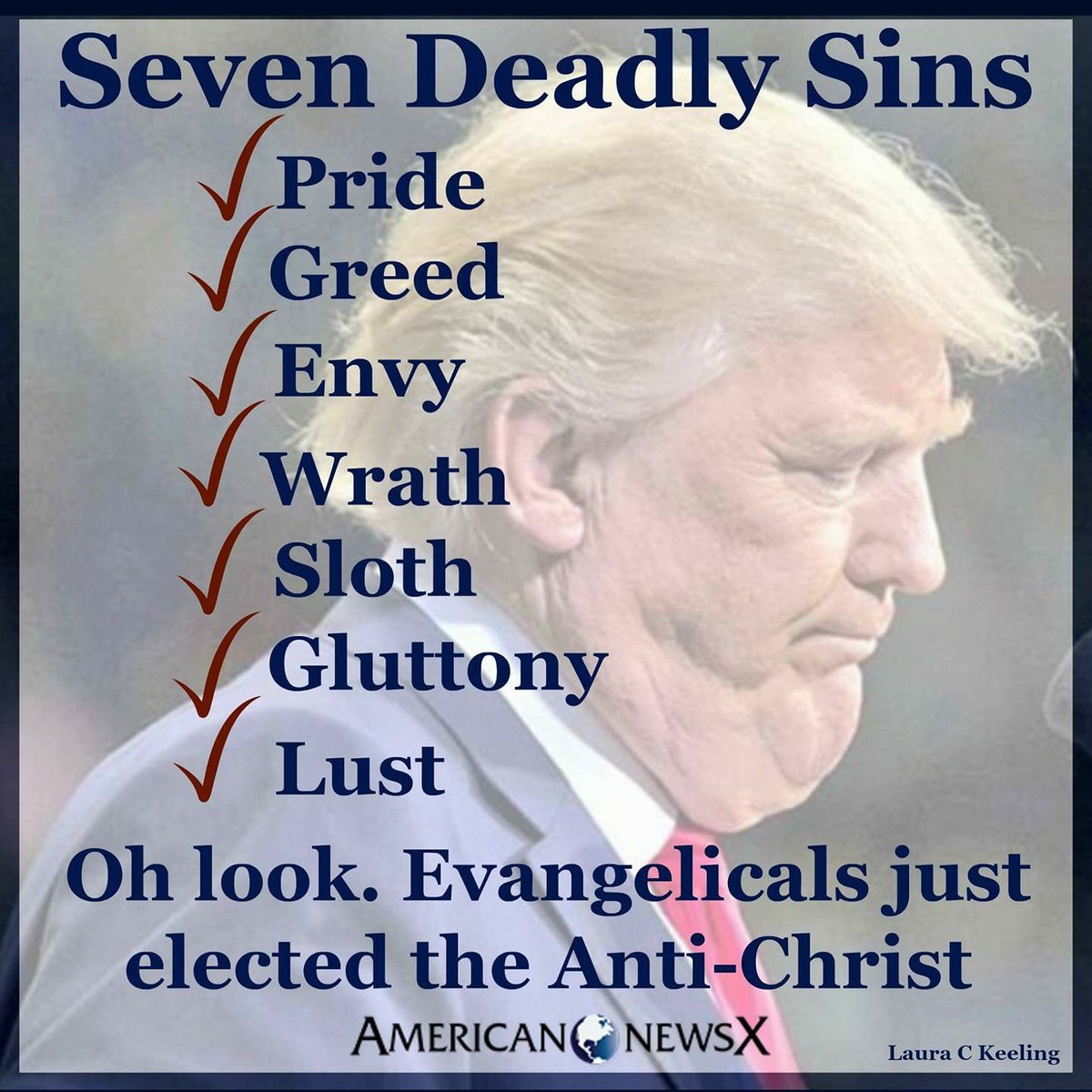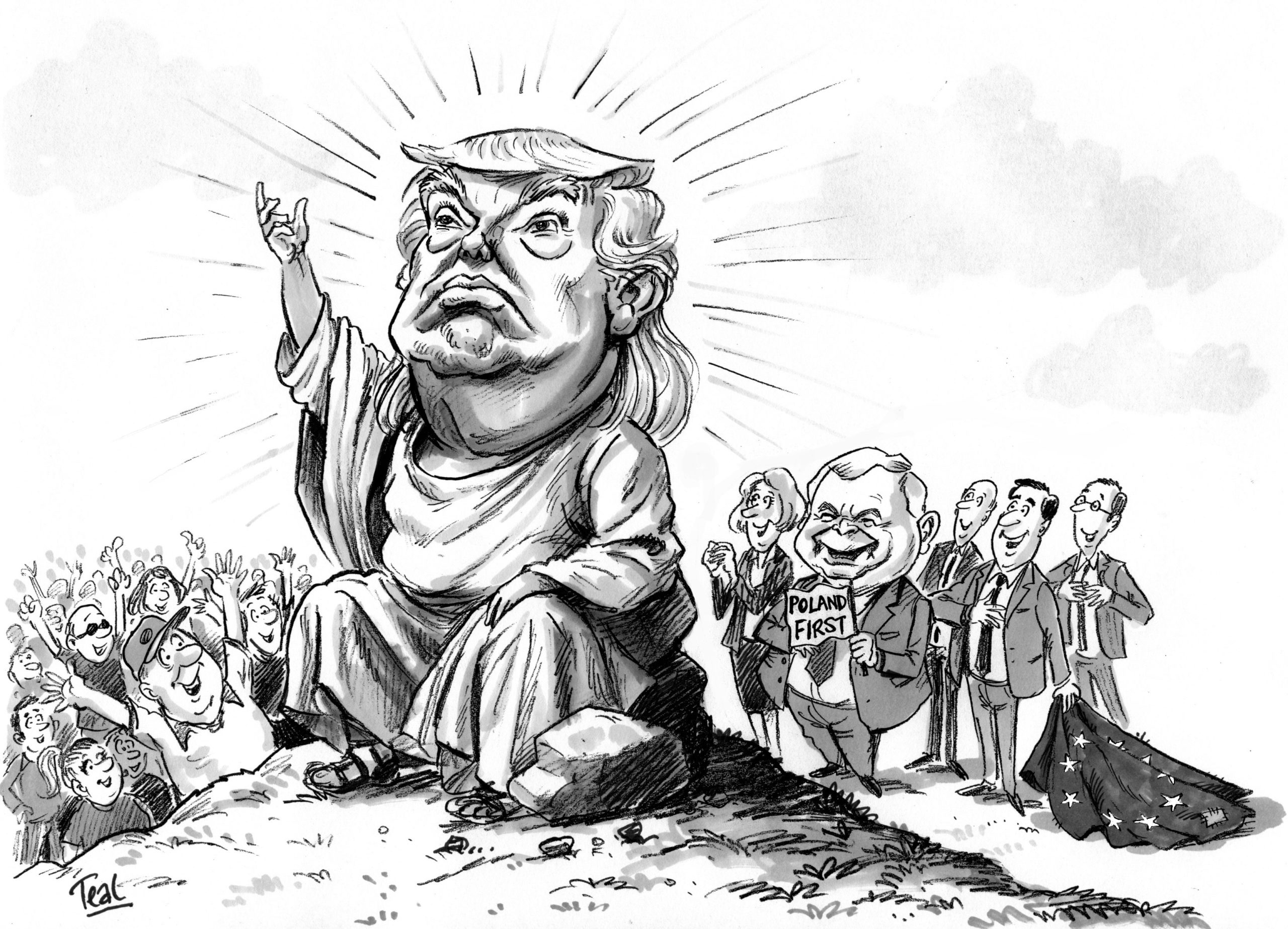Is Trump the Antichrist? This question has sparked heated debates, fueled conspiracy theories, and drawn attention from both religious scholars and the general public. In recent years, discussions around this topic have gained significant traction, especially during Donald Trump's presidency and its aftermath. The idea of a political figure being labeled as the Antichrist is not new, but Trump's polarizing leadership style, controversial policies, and larger-than-life persona have made him a focal point for such claims. In this article, we will explore the origins of this theory, analyze its validity, and provide a balanced perspective on the issue.
The concept of the Antichrist originates from religious texts, particularly the Bible, where it is described as a figure who opposes Christ and promotes chaos and deception. Throughout history, various leaders and public figures have been labeled as the Antichrist by their critics. However, the modern-day association of this term with Donald Trump raises important questions about the intersection of religion, politics, and media. As we delve deeper into this topic, we will examine the theological, cultural, and political factors that contribute to this narrative.
Understanding the claim that Trump might be the Antichrist requires a nuanced approach. While some view it as a metaphorical critique of his leadership, others take it literally based on their religious beliefs. Regardless of one's perspective, it is essential to approach this topic with critical thinking and an open mind. By the end of this article, you will have a comprehensive understanding of the arguments for and against this claim, as well as the broader implications of such discussions in today's world.
Read also:Raspberry Pi Ssh Client A Comprehensive Guide For Beginners And Experts
Table of Contents
- Biography of Donald Trump
- Understanding the Concept of the Antichrist
- Origins of the "Trump as Antichrist" Theory
- Religious Perspectives on the Claim
- Political Implications of the Theory
- Cultural Impact and Media Influence
- Common Conspiracy Theories Surrounding Trump
- Expert Opinions and Scholarly Analysis
- Counter-Arguments and Rational Perspectives
- Conclusion: Separating Fact from Fiction
Biography of Donald Trump
Before diving into the controversial claim, it is important to understand who Donald Trump is and his journey to becoming a central figure in global politics. Below is a brief overview of his personal and professional life.
| Full Name | Donald John Trump |
|---|---|
| Date of Birth | June 14, 1946 |
| Place of Birth | Queens, New York, USA |
| Political Career | 45th President of the United States (2017-2021) |
| Business Ventures | Real estate developer, television personality, author |
| Education | University of Pennsylvania (Wharton School) |
Donald Trump rose to prominence as a real estate mogul in New York City before expanding his brand globally. His leadership style, characterized by bold statements and unorthodox decisions, has always been a subject of public fascination. His presidency further amplified his influence, making him one of the most polarizing figures in modern history.
Understanding the Concept of the Antichrist
The term "Antichrist" originates from Christian theology and is primarily mentioned in the New Testament, specifically in the letters of John and the Book of Revelation. In these texts, the Antichrist is described as a deceiver who opposes Christ and leads people astray. While interpretations vary across denominations, the general consensus is that the Antichrist will emerge during the end times to challenge divine authority.
Key Characteristics of the Antichrist
- Opposition to Christ and Christian values.
- Deceptive and manipulative behavior.
- Association with chaos, destruction, and false teachings.
- A charismatic figure who gains widespread influence.
Throughout history, the concept of the Antichrist has been applied to various historical figures, including Roman emperors, medieval rulers, and modern-day politicians. This demonstrates how the term is often used as a rhetorical tool to criticize leaders perceived as morally corrupt or tyrannical.
Origins of the "Trump as Antichrist" Theory
The idea of Donald Trump being the Antichrist gained momentum during his presidency, particularly among critics who opposed his policies and leadership style. Several factors contributed to the emergence of this theory:
- Trump's controversial statements and divisive rhetoric.
- His alignment with certain evangelical leaders who praised him as a "chosen" leader.
- Media portrayals that emphasized his authoritarian tendencies.
- Conspiracy theories linking him to apocalyptic prophecies.
Role of Social Media
Social media platforms played a significant role in amplifying the "Trump as Antichrist" narrative. Viral posts, memes, and videos often portrayed him as a figure of chaos and deception, reinforcing the theory among specific online communities.
Read also:Access Pi Remotely Software Free A Comprehensive Guide
Religious Perspectives on the Claim
Religious scholars and leaders have weighed in on the claim that Trump might be the Antichrist. While some dismiss it as baseless speculation, others argue that it reflects deeper theological concerns about the relationship between faith and politics.
Christian Views
Many Christians reject the idea of labeling any political figure as the Antichrist, emphasizing that such claims lack scriptural evidence. However, some evangelical groups have expressed concerns about Trump's moral character and policies, which they believe contradict Christian values.
Interfaith Perspectives
Outside of Christianity, the concept of the Antichrist does not hold the same significance. For example, in Islam, Judaism, and other religions, similar figures exist in eschatological narratives, but they are not directly comparable to the Christian Antichrist.
Political Implications of the Theory
The claim that Trump is the Antichrist has significant political implications, particularly in terms of how it influences public opinion and discourse. By framing a political leader in such extreme terms, critics risk polarizing society further and undermining constructive dialogue.
Impact on Political Discourse
Labeling Trump as the Antichrist often serves as a rhetorical device to delegitimize his presidency and policies. While this may resonate with his opponents, it can alienate those who support him, creating a more divisive political climate.
Cultural Impact and Media Influence
The "Trump as Antichrist" theory has permeated popular culture, appearing in movies, TV shows, and online content. This reflects broader societal anxieties about leadership, morality, and the future of democracy.
Examples in Popular Culture
- Satirical portrayals in late-night comedy shows.
- Documentaries exploring conspiracy theories.
- Fictional works inspired by apocalyptic themes.
Common Conspiracy Theories Surrounding Trump
Beyond the Antichrist claim, numerous conspiracy theories have been associated with Donald Trump. These include allegations of ties to foreign governments, involvement in secret societies, and manipulation of election outcomes. While many of these theories lack credible evidence, they continue to circulate widely online.
QAnon and Trump
One of the most notable conspiracy theories linked to Trump is QAnon, which falsely claims that he is fighting a global cabal of elites. This theory has been widely debunked but remains influential among certain groups.
Expert Opinions and Scholarly Analysis
To provide a balanced perspective, it is crucial to consider expert opinions on the "Trump as Antichrist" theory. Scholars in religious studies, political science, and psychology offer valuable insights into why this claim persists and how it should be addressed.
Religious Scholars
Many religious scholars caution against conflating political figures with apocalyptic prophecies. They argue that such claims can distort theological teachings and create unnecessary fear among believers.
Political Analysts
Political analysts highlight the dangers of using religious rhetoric to critique political leaders. This approach can blur the line between faith and politics, potentially undermining democratic principles.
Counter-Arguments and Rational Perspectives
While the "Trump as Antichrist" theory has garnered attention, it is essential to consider counter-arguments that challenge its validity. Many critics argue that the claim is overly simplistic and fails to account for the complexities of leadership and human behavior.
Lack of Scriptural Evidence
One of the main criticisms of the theory is its lack of scriptural support. The Bible does not provide specific details about the Antichrist's identity, making it difficult to attribute this label to any individual.
Focus on Policy Over Rhetoric
Instead of focusing on sensational claims, critics suggest evaluating Trump's policies and actions based on their impact on society. This approach encourages a more constructive and evidence-based discussion.
Conclusion: Separating Fact from Fiction
The claim that Donald Trump is the Antichrist is a provocative and controversial topic that reflects broader societal anxieties about leadership, morality, and the future. While it is important to engage with these discussions critically, it is equally crucial to avoid oversimplifying complex issues or relying on baseless speculation.
By examining the origins, religious perspectives, and cultural impact of this theory, we gain a deeper understanding of its implications. Ultimately, the "Trump as Antichrist" narrative serves as a reminder of the power of rhetoric and the need for informed, rational discourse in addressing societal challenges.
We invite you to share your thoughts on this topic in the comments below. Do you think the "Trump as Antichrist" theory holds any merit, or is it merely a product of hyperbolic criticism? Feel free to explore other articles on our site for more insights into contemporary issues and debates.

